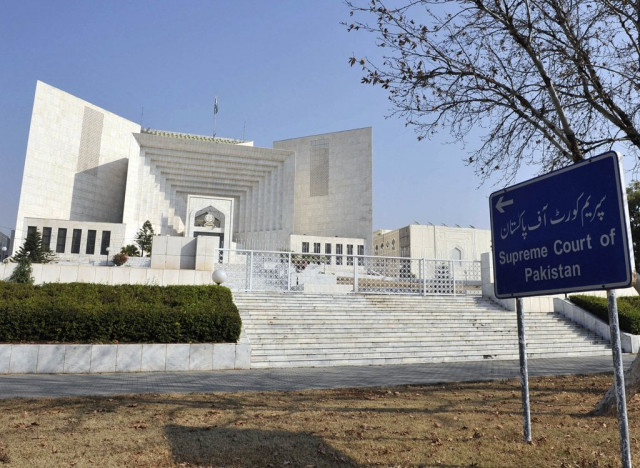No leniency in honour killing cases: SC
Court rules out relief under Section 302(c) of PPC

The Supreme Court has declared that the punishment prescribed in Section 302(c) of the Pakistan Penal Code (PPC) could not be given in an honour killing case.
The court has also urged that the term 'Ghairat' should not be used in such cases.
“Parliament was rightly concerned with the prevalence of such killings and enacted legislation to dissuade, if not stop such crimes. It did so by ensuring that offenders do not avail of the benefit of section 302(c) of the PPC, for which the maximum punishment is 25 years imprisonment but which does not prescribe a minimum punishment," read a 14-page landmark ruling authored by Justice Qazi Faez Isa.
The court gave the verdict on a jail petition filed by an individual, Muhammad Abbas, who was awarded the death sentence by a sessions judge in Nankana for the murder of his wife.
However, the Lahore High Court reduced his death sentence into life imprisonment.
A division bench of the apex court led by Justice Isa refused to grant leave to appeal for further reducing his sentence under Section 302(c) PPC wherein the punishment is less than the death sentence and life imprisonment.
"Pakistan has one of the highest, if not the highest per capita honour killings in the world and predominantly the victims are women,” the verdict read.
“By stating that murder was committed on the pretext of ghairat (honour) the murderer hopes to provide some justification for the crime. It may also elevate the murderer’s social status with those not familiar with what Almighty Allah Commands in the Holy Qur’an. This is unfortunate, more so because there is no honour in such killings.”
According to the judgment, parliament had specifically stipulated that such crimes of honour killing attracted clause (a) or clause (b) of Section 302 of PPC, for which the punishment was either death or imprisonment for life.
“Killing is never honourable and a murder should not be categorized as such. It will help deter such killings if the term ghairat is not used to describe them,” Justice Isa noted.
“It is also inaccurate to translate ghairat into English as honour. The word ghairat does not have an exact English equivalent. A more accurate translation of the trait of ghairat would be ‘arrogance’ and the one with such trait is an ‘arrogant’ person,” he added.
The judgment noted that extremism and violence had permeated through the Pakistani society. Not enough is being done to ensure that crimes against women do not take place.
"Respect and language play an important role to bring about a positive change in society and using terminology such as ghairat or honour is not helpful.”
"For Muslims the Holy Qur’an is the word of God. Killing a person is abhorrent and a grave sin. The Holy Qur’an also does not mandate the punishment of death for the offence of adultery. If the petitioner suspected his wife of infidelity he should have followed the path prescribed by the Holy Qur’an and the law of Pakistan to resolve the matter."
The court noted that Almighty Allah had stipulated a very high standard of proof to sustain a charge of adultery which was by producing four witnesses, failing which he was to be flogged; ‘and those who accuse “muh’sanati” (married or honourable women) and produce not four witnesses flog them.
The court noted that it was thus clear that such allegations must not be made lightly and on the basis of mere suspicion.
"Making a false allegation of adultery is an offence under section 496C PPC and also constitutes an offence of qazf under the Offence of Qazf (Enforcement of Hadd) Ordinance, 1979."
The court also observed that murder and false allegation of adultery were separate and distinct offences.
"The Holy Qur’an also does not permit killing on the ground of adultery, let alone on the ground of ghairat (ghairatun in Arabic), nor prescribes a lesser punishment for such killings. The law of Pakistan also does not permit this. It is inappropriate to interpret Chapter XVI of the PPC, which includes section 302 PPC, by disregarding the requirements of Section 338-F PPC, which necessitates seeking guidance from the Holy Qur’an and Sunnah,” the judgment read.



















COMMENTS
Comments are moderated and generally will be posted if they are on-topic and not abusive.
For more information, please see our Comments FAQ